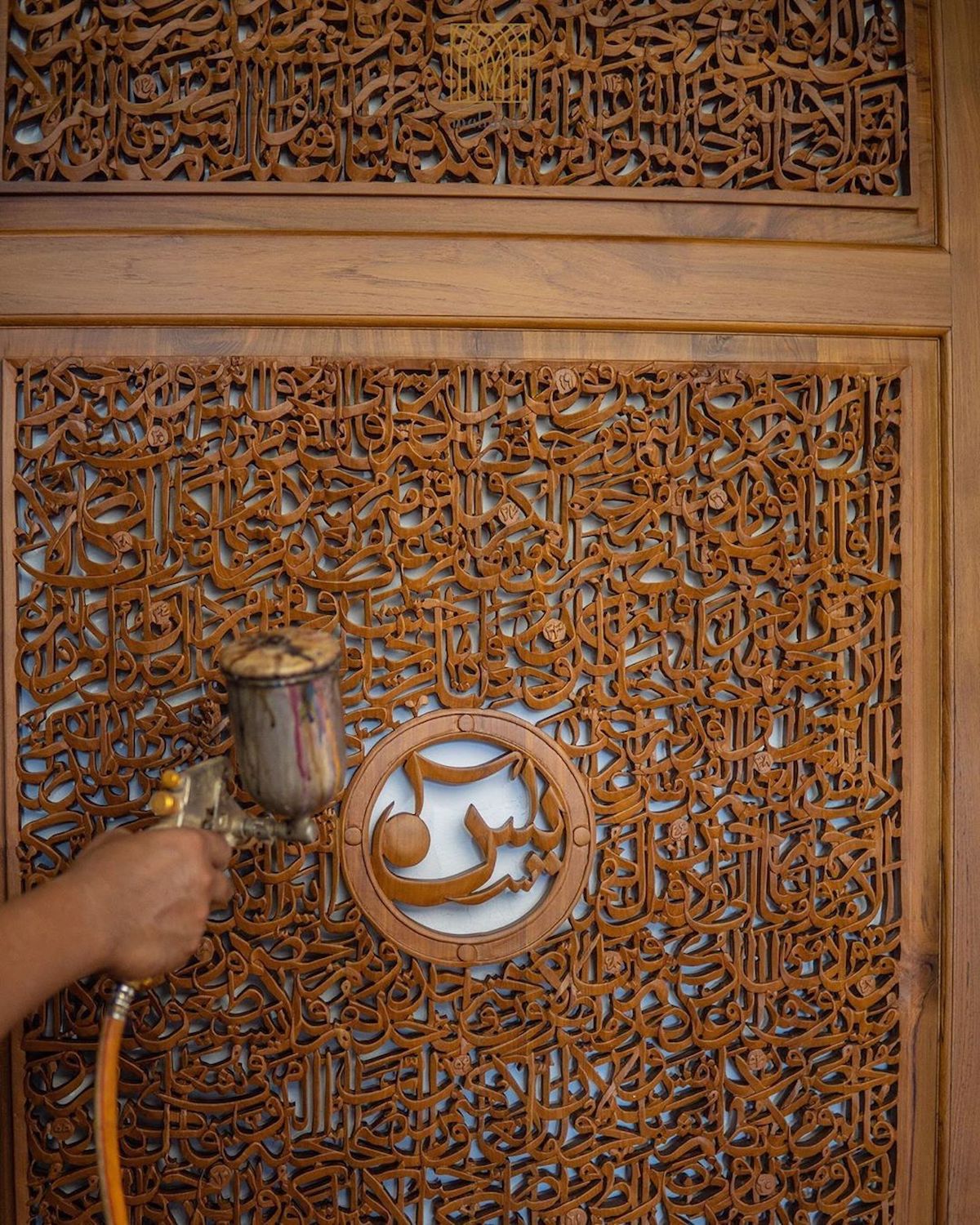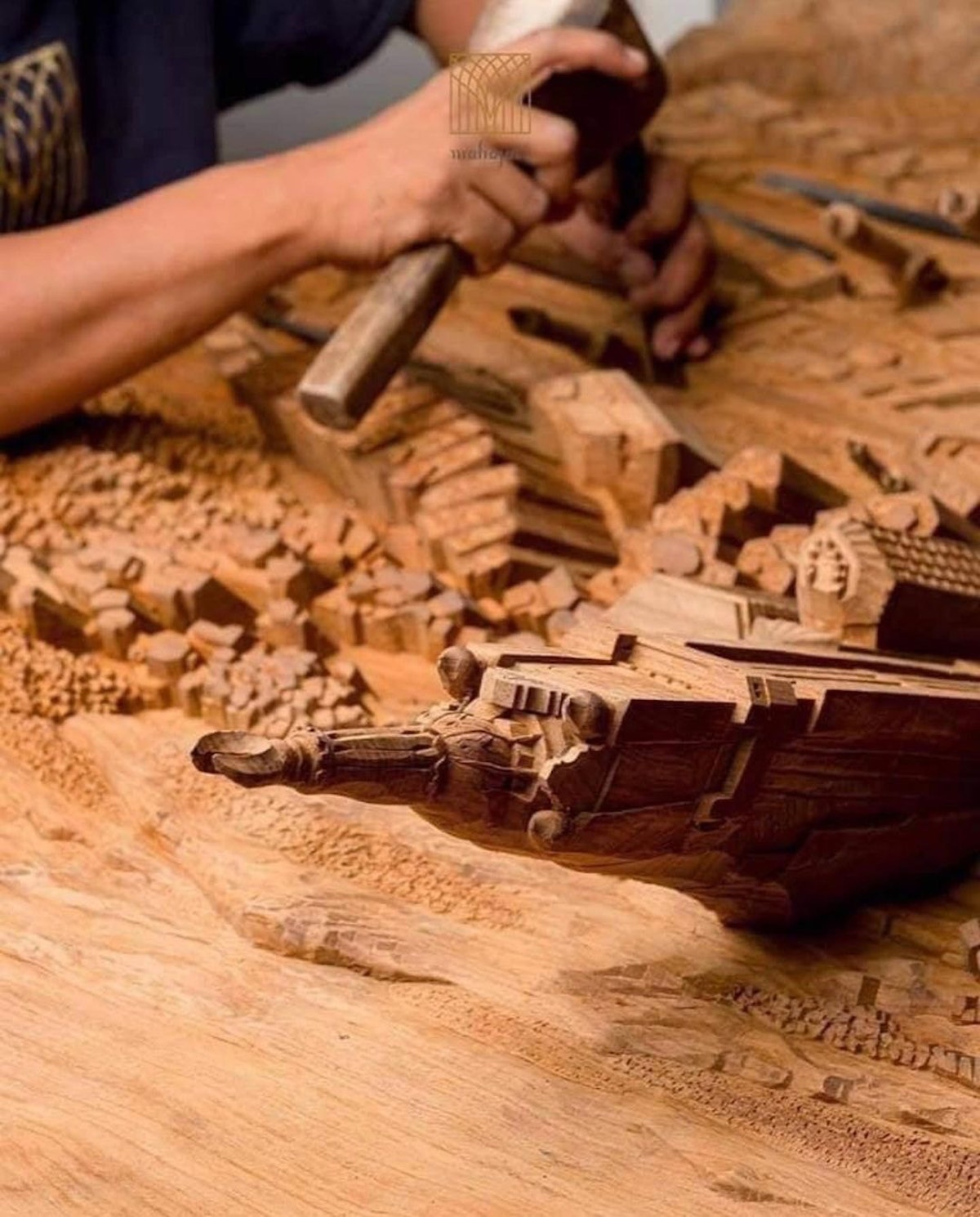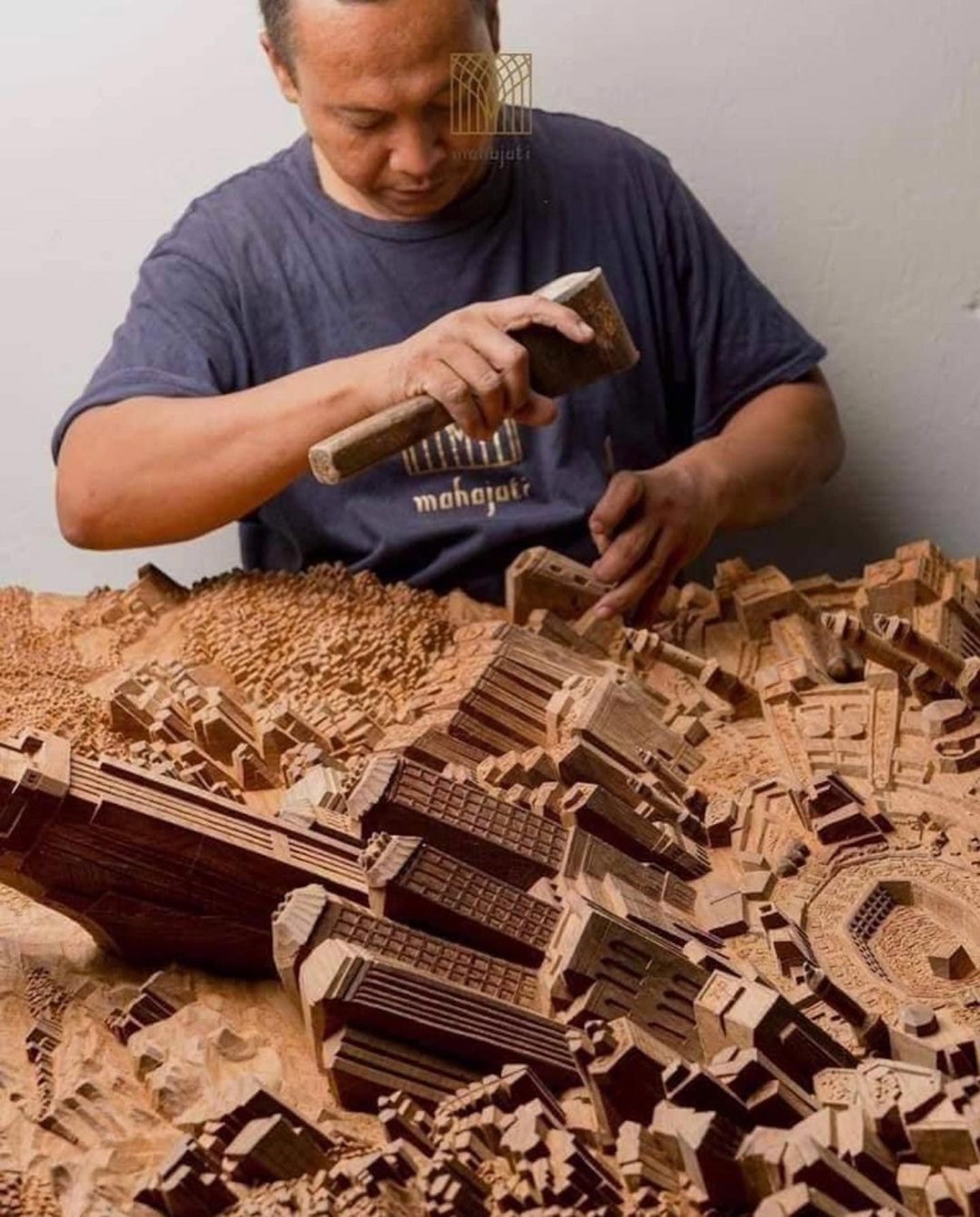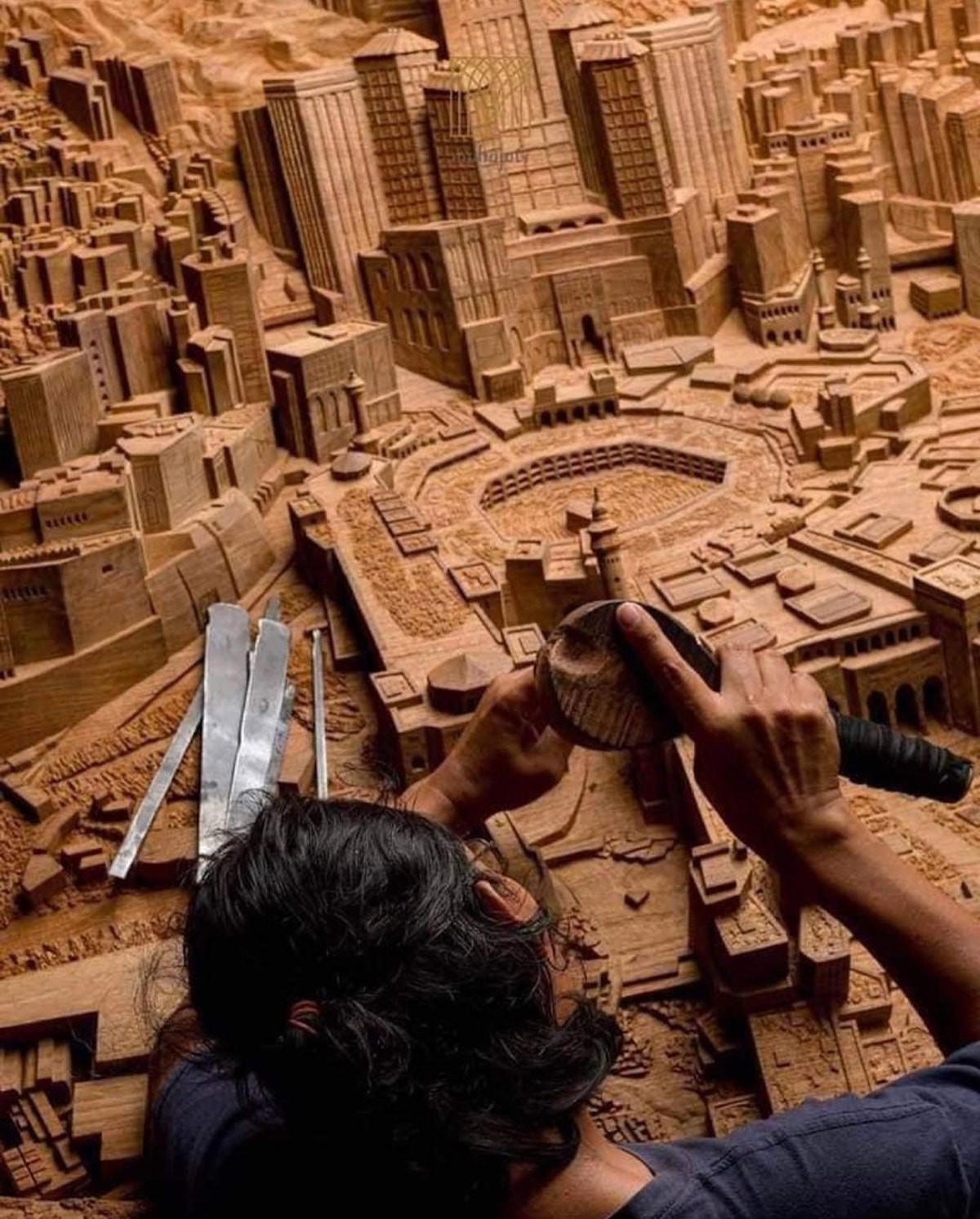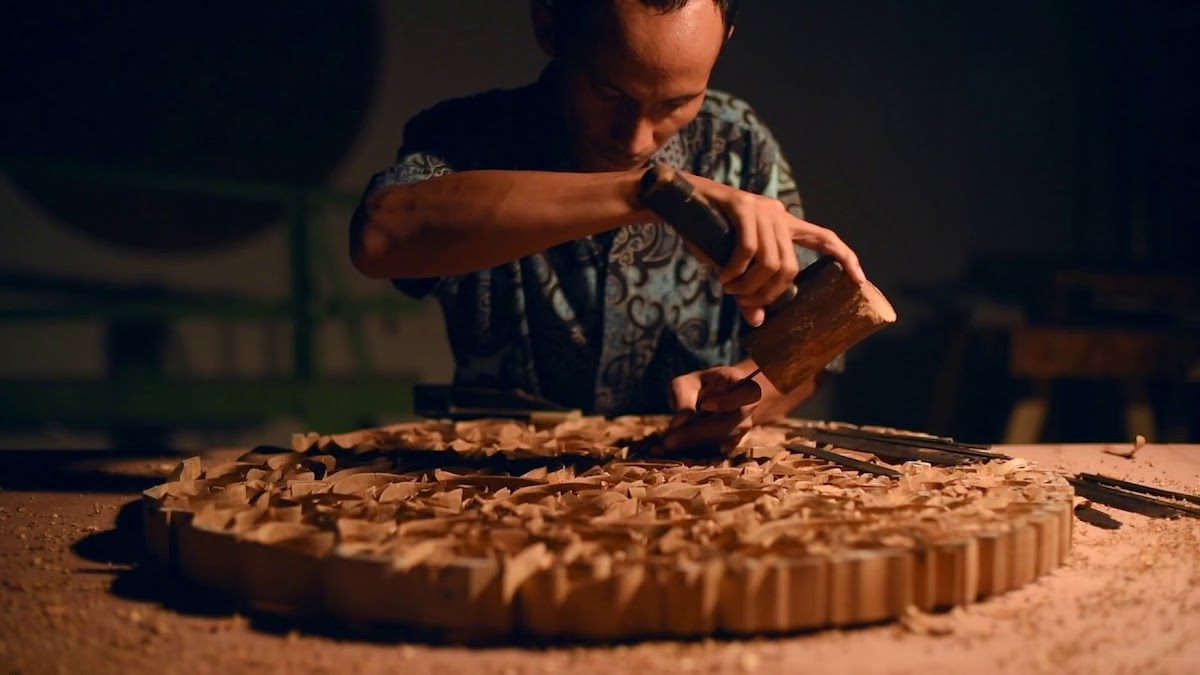
Mohammad Mohdar Anwar was searching for a unique gift for his mother’s birthday when he first became interested in traditional Islamic woodcarving. “On first sight, I was captivated by the beauty of calligraphic art which the artisans produced by hand, for their homes,” Anwar recalls. “I knew I had found something special and coaxed the artisans to produce a raw wood sculpture of Ayatul Kursi which I showcased with finished and framing.” This collaboration with the artisans eventually led Anwar to form Mahajati—a company dedicated to preserving a dwindling trade while making art more accessible to those who would appreciate it.
“The art of woodcarving is a dying tradition,” Mahajati laments. “Most of our artists are about 45 years of age. Some of them are Hafiz Quran and Imam of neighboring mosques. We are doing our utmost effort in preserving this art and promoting the beauty of Islam all together.” The beauty of Islam is certainly present in the unique calligraphy work that is used to create the intricate and delicate layers of the three-dimensional pieces. Other works merge calligraphy with decoration, like flowers and leaves, while some pieces act as perspectival maps of city spaces.
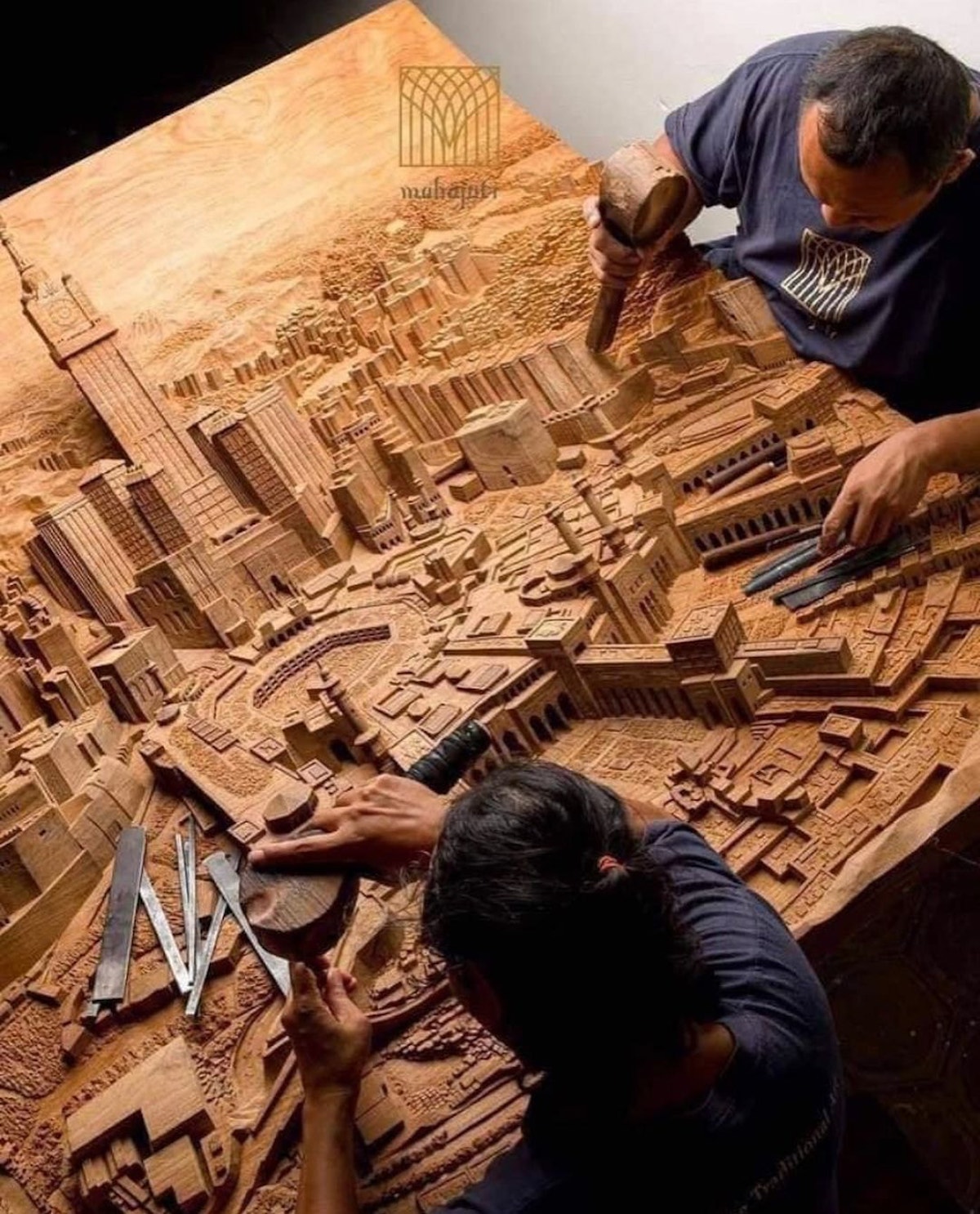
The main collections for sale include mubkhars, or incense burners, and decorative wall pieces that are either fully 3D or partially 3D with a flat back. While these are popular, Mahajati’s greatest artistic achievement (which has garnered them global attention) is a large-scale model of Makkah al-Mukarramah, or Mecca. The photos of their process show artisans working at an impressive scale with unusual angles as buildings seem to peel off of a single piece of wood. Detailed façade work and rough textures across the extruded surfaces further help the piece stand out, and showcases the wide range of methods used to complete the composition.
The Makkah model is proof that though this art is traditional and has a long history, this does not mean that the work is static. The work is constantly changing and improving with more intricate and unique pieces constantly being produced. “Our artisans devote lots of time to learning and exploring,” Anwar explains. “In the pursuit of perfection, they find their voice to express emotions and ideas through shapes, colors, and textures on wood.” Mahajati’s founder goes on to say that their products are different from ordinary wall art. “Every piece you purchase is not only an art, but it has identity, meaning, and purpose.”
You can find these incredible wood carvings or request a custom piece through Mahajati’s website. Be sure to watch the carving process firsthand in the video below.
Mahajati was formed as a method to preserve the dwindling trade of Islamic wood carving, while making art more accessible to those who would appreciate it.
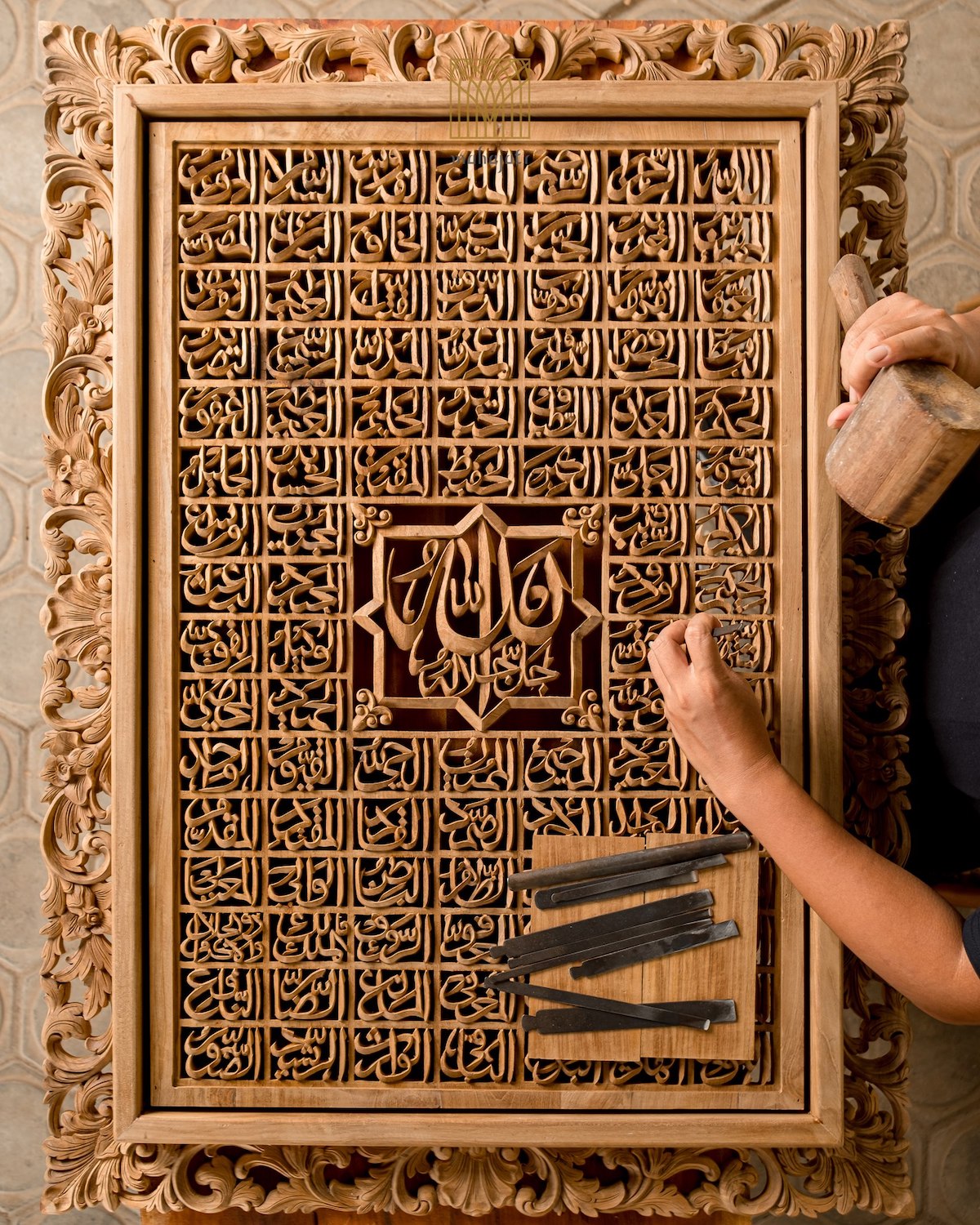
While much of the work focuses on calligraphy, some pieces decorate with flowers and leaves.
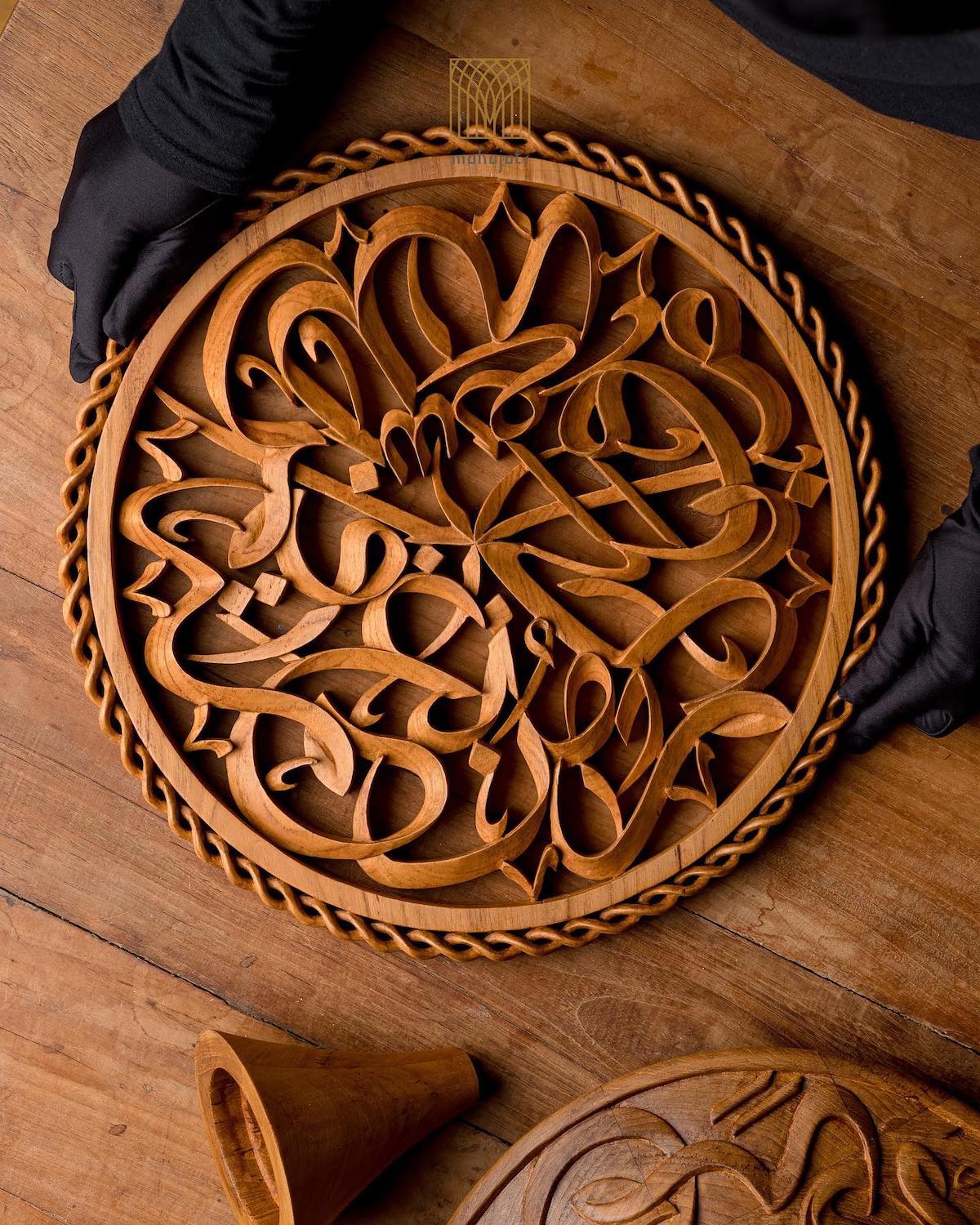
Mahajati achieved global attention across art sites from a large-scale model of Makkah al-Mukarramah, or Mecca.
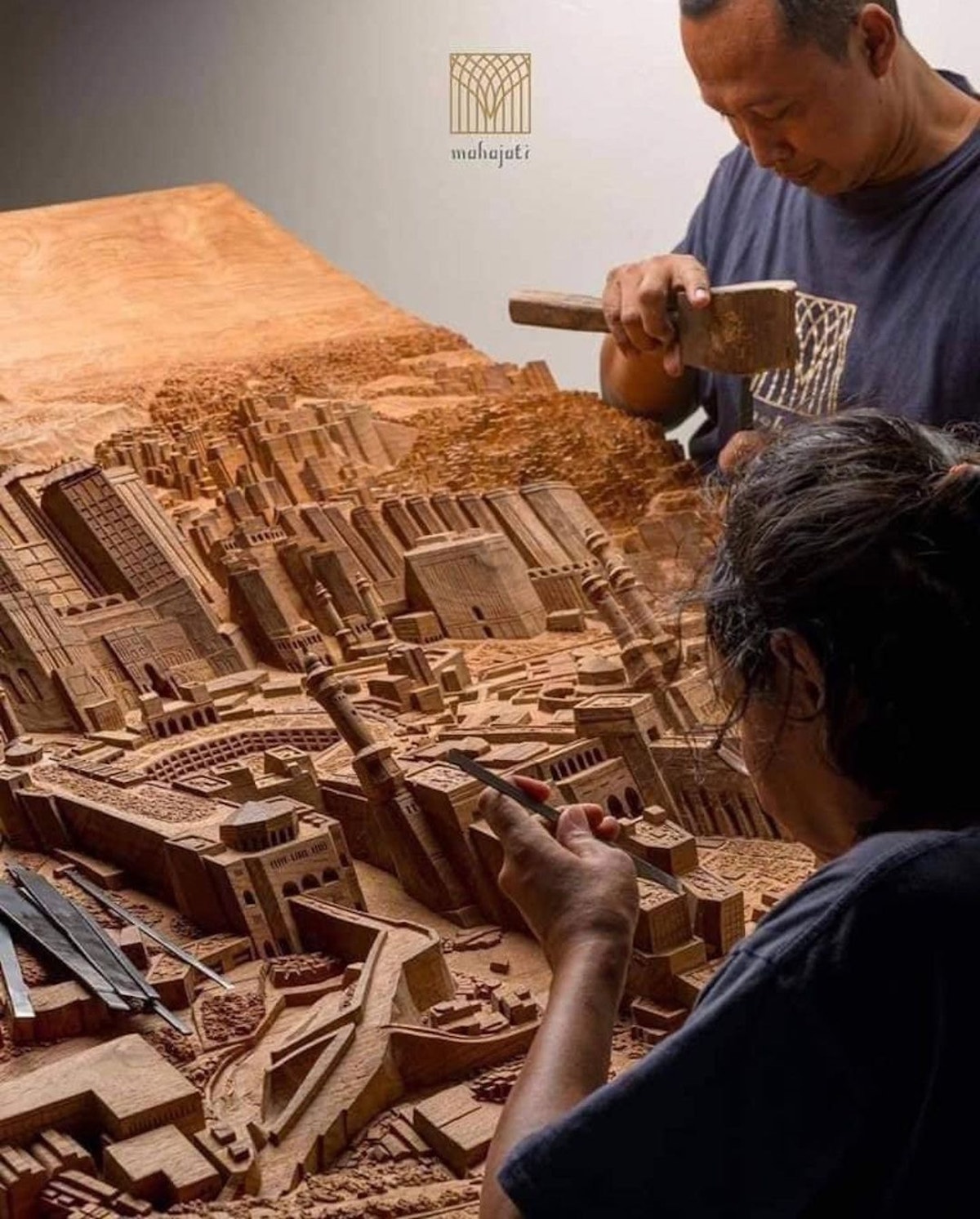
Buildings with detailed façade work seem to peel off a single piece of wood.
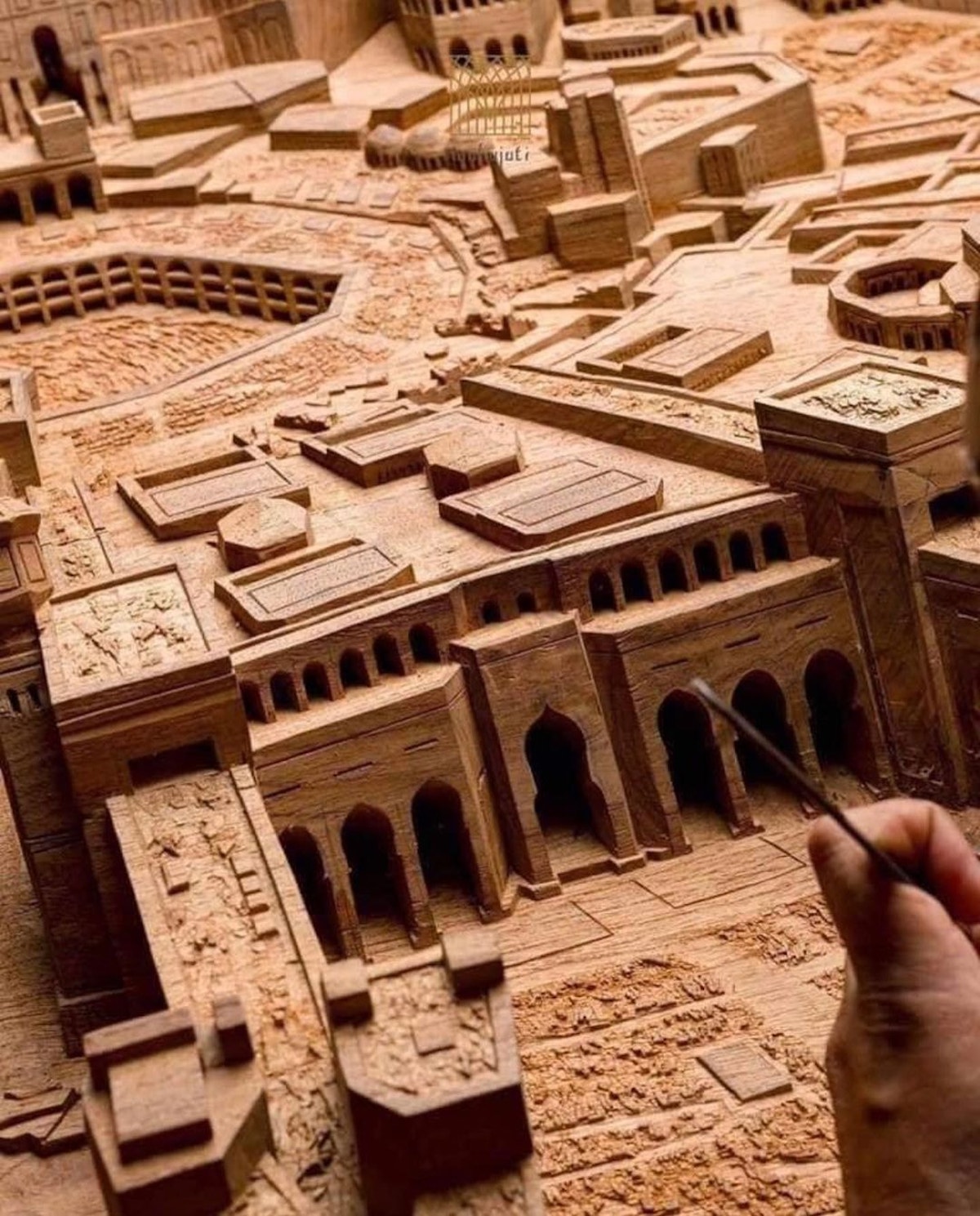
Mahajati says that these works are not just wall art. “Every piece you purchase is not only an art, but it has identity, meaning, and purpose.”
